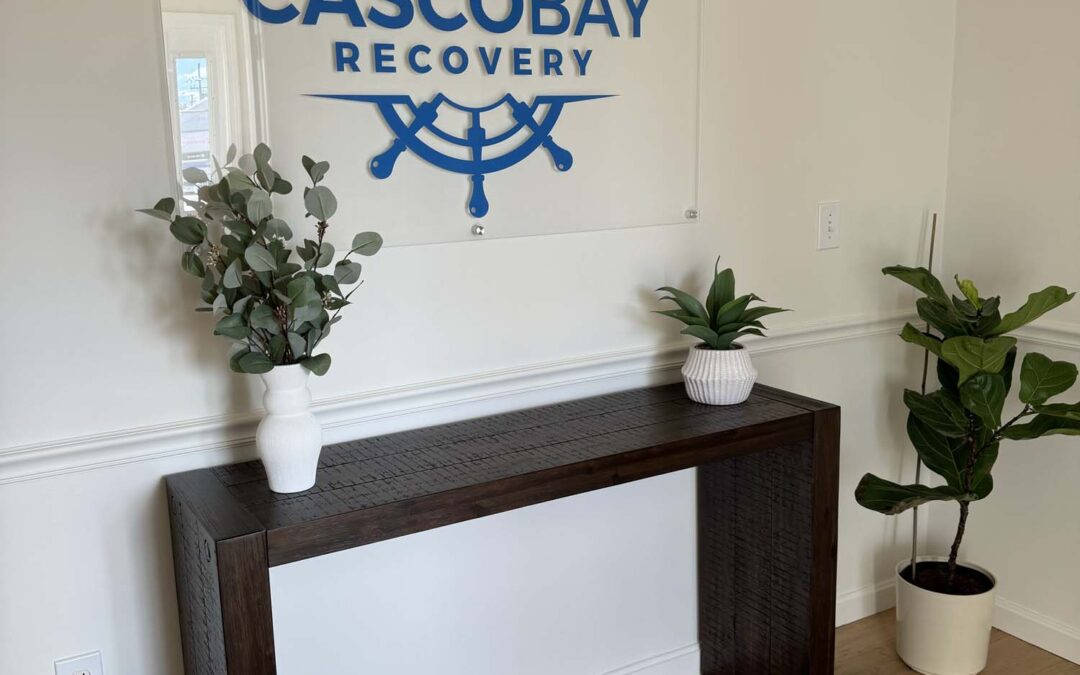Flu Season is coming, is Cold Medicine Safe?
As flu season approaches, it’s important to stay cautious, especially for those who are recovering from addiction. During this time when health concerns are high, many people wonder, “Can I take cold medicine while recovering from addiction?” The answer isn’t straightforward. While cold medicines can help relieve symptoms, they may also pose risks for individuals in recovery.
Potential Risks of Cold Medicine in Addiction Recovery
In the context of addiction recovery, certain ingredients found in over-the-counter cold medications may present challenges:
- Dextromethorphan: This ingredient is commonly found in cough syrups and can be misused for its psychoactive effects. For individuals with a history of substance abuse, this can trigger cravings or even lead to relapse.
- Pseudoephedrine: Often used as a decongestant, pseudoephedrine can also be abused for its stimulant properties. This poses a risk for individuals recovering from stimulant addictions.
For those taking medications like Suboxone (used to treat opioid addiction), questions such as “What cold medicine can I take with Suboxone?” become important. It’s crucial to ensure that any over-the-counter medication does not interact negatively with prescribed treatments.
Special Considerations for Recovering Alcoholics
It’s also essential to be mindful of specific products like Nyquil, which contains alcohol. For recovering alcoholics, consuming any amount of alcohol can jeopardize their sobriety and recovery progress.
Making Informed Decisions About Cold Medicine
Understanding these risks is vital for making informed decisions about using cold medicine while maintaining sobriety:
- Consult Healthcare Providers: Reach out to your doctor or pharmacist before taking any new medication. They can provide guidance on safe options that won’t interfere with your recovery.
- Explore Safer Alternatives: Look for non-drowsy or alcohol-free alternatives to traditional cold medicines. Natural remedies such as honey, ginger tea, or saline nasal sprays may offer relief without compromising your sobriety.
- Stay Informed: Educate yourself about the active ingredients in various over-the-counter medications. This knowledge empowers you to make choices that align with your recovery goals.
By prioritizing communication with healthcare professionals and seeking out safer alternatives, individuals in addiction recovery can navigate flu season while minimizing potential risks associated with cold medicine use.
Understanding Cold Medicines
When dealing with cold symptoms, over-the-counter (OTC) drugs are often the first line of defense. These medications come in various forms and target different symptoms to provide relief. Common types include:
- Decongestants: Often contain pseudoephedrine or phenylephrine, used to relieve nasal congestion.
- Antihistamines: Ingredients like diphenhydramine or loratadine for alleviating runny nose and sneezing.
- Cough Suppressants: Typically include dextromethorphan, which helps reduce coughing.
- Pain Relievers/Fever Reducers: Contain active ingredients such as acetaminophen or ibuprofen.
While these medications can be effective, some active ingredients may pose risks. For instance, dextromethorphan, a common component in cough suppressants, can lead to respiratory depression if misused or taken in large quantities. This risk is heightened for individuals recovering from substance use disorders, where sensitivity to such effects may be increased.
Understanding the potential hazards associated with OTC cold medicines is crucial for making informed decisions about their use during recovery. Recognizing these ingredients and their effects can help you maintain control over your health and recovery journey.
Risks for Individuals in Recovery
When you’re in recovery, it’s important to be careful about the cold medicines you choose. Some of these medications can be risky for people who are trying to overcome addiction.
Pseudoephedrine and Its Risks
One ingredient to watch out for is pseudoephedrine, which is commonly found in many over-the-counter decongestants. This substance has the potential to trigger cravings and is also linked to the production of methamphetamine. If you’re recovering from stimulant addiction, using products that contain pseudoephedrine could unintentionally lead you back to old habits.
Alcohol Content in Cold Medications
Another concern is the presence of alcohol in certain cold medications, especially for those recovering from alcohol dependence. Many liquid cold remedies, like some versions of Nyquil, contain alcohol. Even small amounts of alcohol can trigger cravings and pose a risk of relapse. This raises an important question: Is it safe for alcoholics to take Nyquil? The general advice is to be cautious and avoid any medications that contain alcohol whenever possible.
It’s also crucial to understand that mixing alcohol with certain medications can lead to harmful interactions. For more information on this topic, the National Institute on Alcohol Abuse and Alcoholism provides valuable resources regarding the harmful interactions that can occur when mixing alcohol with medicines.
Being aware of these risks empowers you to make better decisions about how to manage cold symptoms while staying on track with your recovery. Always look for non-alcoholic alternatives and don’t hesitate to reach out to healthcare professionals for guidance on the safest ways to treat colds without jeopardizing your progress.
Safe Alternatives for Managing Cold Symptoms
Navigating cold symptoms during addiction recovery calls for safe, non-addictive solutions. This becomes particularly vital when you ask, “Can I take cold medicine in addiction recovery?” Luckily, there are non-sedating alternatives that can effectively manage symptoms without compromising your recovery journey.
1. Saline Nasal Sprays
These sprays provide relief from nasal congestion by moisturizing the nasal passages and clearing out mucus. Unlike many over-the-counter medications, saline sprays are non-addictive and free from harmful ingredients, making them a safe choice.
2. Loratadine
As an antihistamine, loratadine can help alleviate runny noses and sneezing without causing drowsiness. It’s considered a safe option for those in recovery due to its non-sedating properties.
When choosing remedies, it’s crucial to focus on options that will not trigger cravings or lead to relapse. Prioritizing non-addictive treatments ensures that you stay on the path of recovery while managing cold symptoms efficiently. Always consult with healthcare providers to tailor these solutions to your specific needs.
Consultation with Healthcare Providers
Consulting healthcare providers is crucial when considering cold medicine use during addiction recovery. By sharing your medication history and disclosing your addiction history, you enable healthcare professionals to provide personalized advice that aligns with your recovery goals. This transparency helps in making informed decisions about medication use, ensuring that prescribed or recommended treatments do not pose a risk of relapse.
A healthcare professional’s guidance can identify potential risks associated with specific ingredients in cold medications that might trigger cravings or adverse reactions. It is vital to discuss any previous experiences with substance use and clarify concerns about certain medications or ingredients.
What to Discuss with Your Healthcare Provider
Engaging openly with healthcare providers promotes a safer approach to managing cold symptoms while prioritizing your recovery journey. Here are some key points to discuss during your consultation:
- Medication History: Provide a comprehensive list of all medications you’re currently taking.
- Addiction History: Clearly communicate past substance use issues for tailored healthcare advice.
Reading Labels and Ingredient Awareness
When managing your health during recovery, ingredient safety is crucial. Thoroughly reading medication labels helps you avoid harmful substances like dextromethorphan, a common cough suppressant that can pose risks for those in recovery from substance abuse.
Key Points to Consider:
- Identify Active Ingredients: Check the active ingredients listed on the label. Ingredients such as dextromethorphan can cause respiratory depression and might trigger cravings or relapse.
- Understand Inactive Ingredients: Be aware of inactive ingredients which may include alcohol or artificial dyes that could also be problematic.
- Dosage Instructions: Follow dosage instructions carefully to prevent unintentional misuse.
Familiarizing yourself with these details ensures you make informed choices about over-the-counter cold medications, safeguarding your recovery journey from potential pitfalls associated with certain harmful substances. This proactive approach aligns with maintaining a healthy lifestyle during flu season while staying committed to your recovery goals.
Non-Pharmacological Treatments and Lifestyle Changes
In the journey of addiction recovery, alternative therapies and holistic approaches present safe options for managing cold symptoms. These methods not only address physical discomfort but also support mental well-being, crucial during recovery.
Natural Remedies for Cold Symptoms
Here are some non-pharmacological treatments that can help alleviate cold symptoms:
- Steam Inhalation: A simple yet effective method to relieve nasal congestion. Inhaling steam can soothe irritated airways, making breathing more comfortable without the need for medication.
- Hydration: Staying well-hydrated helps thin mucus and keeps your body functioning optimally. Opt for water, herbal teas, or broths to maintain fluid balance.
- Rest: Providing your body with adequate rest allows it to heal naturally. Prioritize sleep and relaxation to help boost your immune system.
- Herbal Remedies: Consider using ginger or honey in warm water as natural remedies. These ingredients have properties that may ease sore throats and coughs.
Integrating Healthy Lifestyle Practices
Adopting a holistic approach means integrating healthy lifestyle practices that align with recovery goals. Activities such as yoga, meditation, and mindfulness exercises can be beneficial in reducing stress, enhancing mood stability, and fostering a sense of control over one’s health.
When wondering, “Can I take cold medicine in addiction recovery?” exploring these non-pharmacological treatments offers reassurance by providing safe alternatives that align with recovery principles. Moreover, embracing these lifestyle changes can significantly contribute to the benefits of sobriety, enhancing overall well-being and supporting the recovery process.
Seeking Information and Support
Navigating the complexities of medication use in addiction recovery requires a proactive approach. It’s crucial to seek out information on safe medication use during recovery phases. Understanding which medications are safe for you and which might pose risks can significantly impact your recovery journey.
1. Education on Medication Use in Recovery
Engage with reliable sources to gain knowledge about medications that are commonly prescribed or available over the counter. This includes understanding the potential side effects and interactions with other substances.
2. Support Systems
Utilize support networks, such as recovery groups or healthcare professionals, who can offer guidance and share experiences related to medication use in recovery. These connections can provide insights into managing cold symptoms without compromising your sobriety.
3. Access to Resources
Many organizations provide educational materials on safe medication practices for those in recovery. Taking the time to explore these resources ensures you’re making informed decisions about your health during flu season.
Prioritizing information and support is an essential step in maintaining a healthy lifestyle throughout your recovery journey.
Casco Bay Recovery Support Services
Navigating health concerns during flu season while in recovery can present unique challenges. Our Casco Bay Recovery support services are here to assist you in making informed decisions. If you find yourself asking, “Can I take cold medicine in addiction recovery?” reach out for personalized guidance. Our team provides support tailored to your needs, ensuring your well-being remains a priority.
We understand that the flu season can be particularly stressful for those in recovery. It’s important to remember that not all cold medicines are safe for individuals in recovery. Therefore, we encourage you to consult with us before making any decisions regarding medication.
Our mission goes beyond just providing immediate support; we aim to help you find joy in sobriety. We believe that with the right resources and guidance, maintaining your recovery journey safely and confidently throughout the flu season is entirely possible. Don’t hesitate to contact us for expert advice and resources that can assist you during this challenging time.







